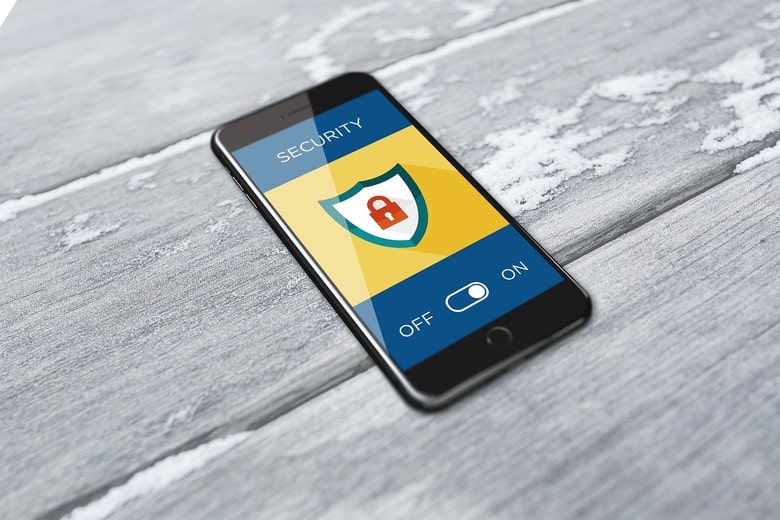Smartphones have become an integral part of our daily lives, but with their increasing capabilities and connectivity comes to a greater need for security. Hackers and cybercriminals are constantly looking for ways to gain access to our personal information and devices, so it’s important to take steps to protect ourselves. Here are some tips for securing your smartphone and keeping your personal information safe:

Table of Contents
1. Use Strong, Unique Passwords
Using strong, unique passwords is an important step in securing your smartphone and personal information. A strong password should be at least 8 characters long and include a combination of upper and lower case letters, numbers, and special characters. It’s important to avoid using the same password for multiple accounts, as this can make it easier for hackers to gain access to multiple accounts if they manage to obtain one of your passwords.
One way to help create and manage strong, unique passwords is to use a password manager. A password manager is a tool that generates and stores strong, unique passwords for all of your accounts, so you don’t have to remember them all yourself. Some password managers also have features such as password strength checks and alerts for compromised passwords.
In addition to using strong, unique passwords, it’s also important to keep your passwords confidential and not share them with anyone. If you do need to share a password with someone, consider using a temporary password or a password-sharing tool that allows you to share the password securely.
2. Enable Two-Factor Authentication
Two-factor authentication (2FA) is an extra layer of security that helps prevent unauthorized access to your accounts, even if someone else has your password. With 2FA, you are required to enter a code sent to your phone or email in addition to your password when logging in to an account. This helps verify that it is actually you trying to access the account and not someone else.
It’s important to keep your phone and email accounts secure as well, as they are used to receive the 2FA codes. Be sure to use strong, unique passwords and keep them confidential, and consider enabling 2FA on your phone and email accounts as well.
3. Keep Your Software up to Date
It’s important to keep your smartphone’s operating system and apps up to date with the latest security patches and updates. These updates frequently include fixes for vulnerabilities that hackers could exploit.
4. Be Cautious When Downloading Apps
When downloading apps for your smartphone, it’s important to be cautious and only download apps from trusted sources. Here are some tips for staying safe when downloading apps:
Only download apps from the official app store for the operating system of your smartphone. These app stores have strict guidelines for the apps they allow and often have security measures in place to help protect users from malicious apps.
Be cautious of apps that ask for excessive permissions or seem suspicious in any way. If an app is requesting access to sensitive information or permissions that it does not need, it may be a sign that the app is not trustworthy.
Read reviews and ratings before downloading an app. If an app has mostly negative reviews or low ratings, it may be best to avoid it.
Use a security app to scan for malware and other threats before and after downloading an app. A security app can help protect your device from malicious apps and alert you to any potential issues.
5. Use a Security App
Using a security app can help protect your smartphone and personal information from potential threats such as malware and other types of online attacks. Here are some features that security apps may offer:
- Malware protection: Security apps can scan your device for malware and other threats, alerting you to any potential issues and providing options for removing the threats.
- Blocking unwanted calls and texts: Some security apps can block unwanted calls and texts from known spam numbers, helping to protect you from potential scams and fraud.
- Data backup: Security apps may offer the ability to back up your data, including contacts, photos, and other important information. This can be useful in case your device is lost or stolen, or if you need to restore your data for any other reason.
- Parental controls: Some security apps offer features such as parental controls, which can help parents monitor and control their children’s device usage and internet access.
To use a security app, you will typically need to download and install the app on your smartphone and follow the prompts to set it up. Be sure to choose a security app from a trusted source and review the app’s permissions before installing it to ensure that it is not requesting access to any sensitive information or permissions that it does not need.
6. Be Mindful of Public Wi-Fi
Public Wi-Fi networks can be vulnerable to hackers, so it’s important to be cautious when using them. Avoid accessing sensitive information, such as banking or credit card accounts, on public Wi-Fi networks. If you do need to access sensitive information, consider using a virtual private network (VPN) to encrypt your internet connection and protect your data.
7. Enable Remote Wipe
A remote wipe feature allows you to erase all of the data on your smartphone from a remote location in case your device is lost or stolen. This can help protect your personal information and prevent unauthorized access to your accounts and sensitive data.
To enable remote wipes, you will typically need to set up a device management service or app on your smartphone. These services typically allow you to remotely locate, lock, or erase your device in case it is lost or stolen.
8. Insurance for Smartphones
While insurance can help protect your smartphone in case it is lost, damaged, or stolen, it is not a means of securing your device or personal information. Insurance typically covers the physical device itself and may provide options for replacing the device if it is lost or damaged.
Nowadays almost everyone thinks of buying phone insurance as soon as they buy a new phone. But, if you have renters insurance, you probably have coverage for your cell phone also. Renters’ insurance policies typically provide coverage for personal property, which may include electronic devices such as smartphones. However, coverage limits and exclusions may apply, so it’s important to check with your insurance provider to understand what is covered under your policy. Or you can consider a standalone insurance policy specifically for your phone. These policies may offer more comprehensive coverage and may be more customizable than a general renters insurance policy.
Final Words
By following these tips, you can help secure your smartphone and protect your personal information from potential threats. It’s important to be proactive in protecting yourself and your data, as the consequences of a security breach can be severe.











Leave a Reply